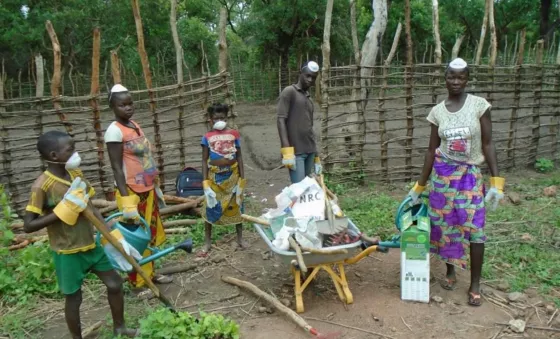Created to support the wellbeing of children and young people through the social and therapeutic benefits of farming and gardening, War Child’s ‘Peace Garden’ initiative is also teaching communities vital skills to grow their own food and create sustainable livelihoods throughout the coronavirus crisis and beyond.
CENTRAL AFRICAN REPUBLIC
Food security remains a prominent issue in CAR.
Nearly half of its population need food assistance and devastatingly chronic malnutrition affects 38% of children between 6 months-5 years. (1)
Our Peace Gardens are adopting the innovative ‘Social and Therapeutic Horticulture’ methodology which addresses both the need for social skills and boosts young people’s capacity to grow their own food through modern techniques.
War Child has established six of these gardens during the pandemic to help tackle this issue, which have so far helped 360 children. The peace gardens are a safe space for vulnerable children, many who are orphaned or used to be in armed groups, to help rebuild their physical and mental wellbeing whilst improving their communication skills by collaborating and supporting one another.

